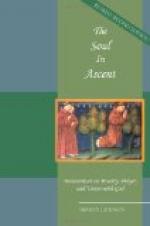The revelation of the ideal humanity was hardly less revolutionary than that of the enlarged universe. Formerly men were regarded as things, commodities to be bought and sold, creatures without souls, objects to be used. But Jesus taught that all men are children of God; therefore that they have the very life of God; therefore that they are created for His eternity, and will forever approach His perfection. This vision of the perfected race has been at work changing national boundaries, destroying hoary institutions, undermining thrones, and making a new world. A glance shows the revolutionary quality of His teaching. Slavery was the curse of every land. With force on the one side and weakness on the other oppression was inevitable. Jesus taught that even weakness may be divine, and lo! from every civilized land slavery has already gone, and from the world it is fast disappearing.
According to the orthodox economic doctrine, supply and demand was the law that should govern the relation between employer and employee. The largest profit and the smallest wages was the watchword. As the teaching of Jesus has penetrated further into the dealings of man with man employers are beginning to realize that labor has to do with human beings; that manhood is enduring and that conditions are ephemeral; and that whosoever oppresses his brother, even in the name of economic law, at last will have to reckon with the Almighty. Thus a new and more beneficent social order is slowly but surely emerging.
The doctrine of the survival of the fittest is, even now, applied to men where the teaching of Jesus that Providence has made a way for the survival of the unfit is unknown or ignored. In all lands the revelation in Jesus of the ideal manhood, and of the destiny toward which all men are moving is changing and glorifying human society. He is the one whom “the low-browed beggar,” and the criminal with a vicious heredity, are some time to approach. Is it difficult to select the one phrase of all human utterances which has exerted the largest influence in ameliorating the human condition? Would it not be,—“Inasmuch as ye did it unto one of the least of these, ye did it unto Me.” The identification of humanity with Deity, the revelation of the divine in the human, the solemn truth that no one can injure or neglect his brother without, at the same time, violating all that is sacred and holy in the universe is the culminating point in the revelation of man to himself. In the light which Jesus sheds on humanity all men appear in their enduring rather than their transitory relations.




